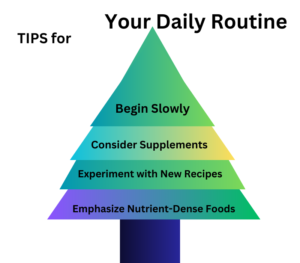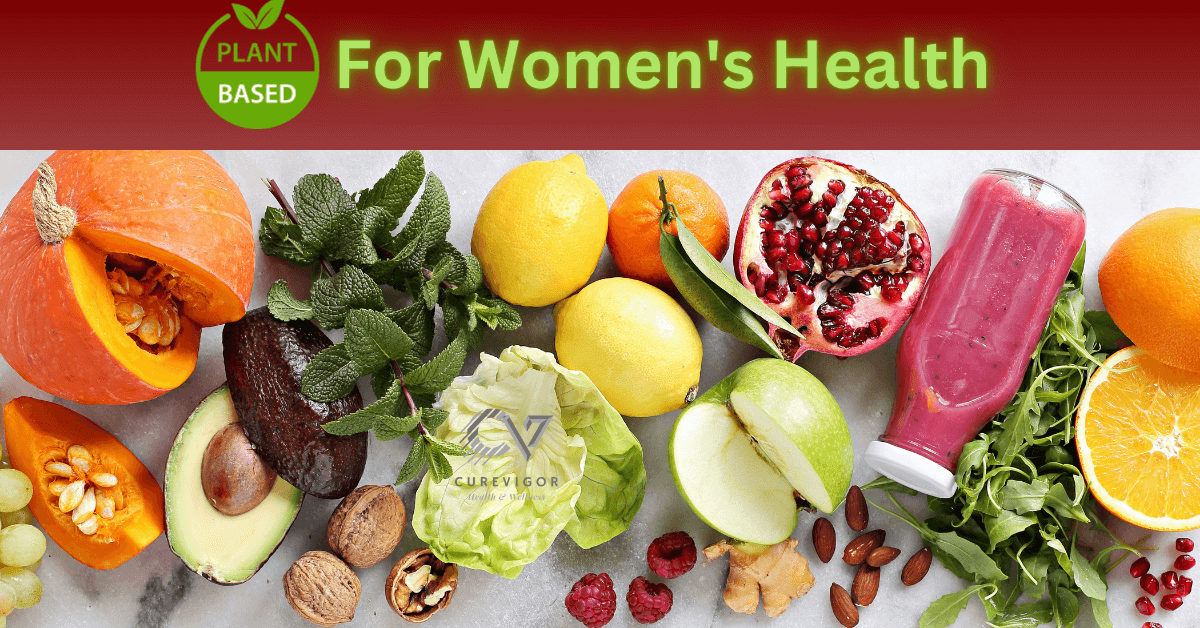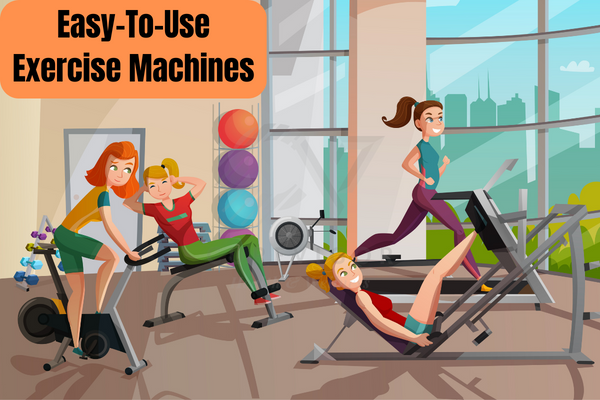Empower Your Health: How a Plant-Based Diet Can Enhance Women’s Well-being. Uncover the Path to a Healthier, Happier You!
Contents
How a plant-based diet can improve women’s health
A plant-based diet can provide numerous health benefits for women, including a lower risk of chronic diseases and better hormonal balance. In this article, we’ll look at the advantages of a plant-based diet for women’s health and how to incorporate it into your daily routine.
In today’s fast-paced world, prioritizing health and well-being is paramount, especially for women. Adopting a plant-based diet is one effective way to enhance overall health and unlock many benefits. Embracing a diet rich in fruits, vegetables, whole grains, nuts, and seeds can offer remarkable advantages for women in various aspects of their lives. This comprehensive guide will delve into the extensive benefits of a plant-based diet, discuss its impact on hormonal balance, provide tips for seamlessly incorporating it into your daily routine, and address potential nutrient deficiencies to ensure optimal health.
Benefits of Plant-Based Diet
-
Lower Risk of Chronic Diseases
One of the most significant advantages of a plant-based diet is its potential to lower the risk of chronic diseases. Research has consistently shown that individuals who follow a plant-based lifestyle have a reduced incidence of heart disease, diabetes, and certain cancers. By prioritizing whole, plant-based foods, women can promote their cardiovascular health, maintain stable blood sugar levels, and fortify their bodies against cancerous developments.
-
Improved Digestive Health
Plant-based foods are naturally rich in fibre, a vital component for maintaining a healthy digestive system. The abundance of fibre aids in promoting regular bowel movements, preventing constipation, and supporting overall gut health. By incorporating a variety of fruits, vegetables, legumes, and whole grains into their diet, women can experience improved digestion and a reduced risk of gastrointestinal issues.
-
Effective Weight Management
A plant-based diet can be a game-changer for women aiming to achieve and maintain a healthy weight. By focusing on nutrient-dense, whole foods, this dietary approach promotes satiety while ensuring adequate nourishment. Plant-based meals are typically lower in calories and saturated fats while rich in vitamins, minerals, and antioxidants. Consequently, women can manage their weight more effectively, enhancing their body confidence and overall well-being.
-
Increased Energy and Reduced Fatigue
Are you tired of feeling drained and lacking energy throughout the day? A plant-based diet might be vital to revitalizing your body and combating fatigue. By nourishing yourself with plant-based foods, you provide your body with essential nutrients, vitamins, and minerals for optimal energy production. The abundance of complex carbohydrates in whole grains, fruits, and vegetables ensures a steady release of energy, keeping you energized and focused throughout the day.
-
Environmental Advantages
Apart from the personal benefits, a plant-based diet aligns with sustainable and environmentally friendly practices. Plant-based foods generally require fewer resources, such as water and land, than animal-based products. By adopting a plant-based lifestyle, women contribute to preserving natural resources and reducing greenhouse gas emissions, thus positively impacting the environment for future generations.
Plant-Based Diets and Hormonal Balance
Hormonal balance is crucial for women’s well-being, and a plant-based diet can play a significant role in achieving it. Hormonal imbalances can lead to many distressing symptoms, including mood swings, irregular periods, and hot flashes. Women can support hormone production and metabolism by nourishing the body with nutrient-dense plant-based foods. These foods contain essential vitamins, minerals, and phytochemicals that aid in maintaining optimal hormonal balance, promoting overall vitality, and reducing the severity of hormonal symptoms.
Tips for Incorporating a Plant-Based Diet into Your Daily Routine

Transitioning to a plant-based diet may seem daunting initially, but with the right approach, it can become a seamless and enjoyable part of your daily routine. Here are some practical tips to help you embark on this transformative journey:
-
Begin Slowly
Rome wasn’t built in a day, and neither is a sustainable dietary change. Start by gradually incorporating more plant-based foods into your meals. This approach allows your taste buds to adjust and helps you discover new flavours and textures.
-
Experiment with New Recipes
Explore the exciting world of plant-based cuisine by experimenting with new recipes. Countless resources, including cookbooks, online platforms, and cooking classes, can inspire you to create delicious and satisfying meals from plant-based ingredients. Trying different recipes will help you find dishes that resonate with your taste preferences and make your transition to a plant-based lifestyle enjoyable and sustainable.
-
Emphasize Nutrient-Dense Foods
When following a plant-based diet, prioritize nutrient-dense foods that provide optimal nourishment. Load your plate with vibrant fruits, vegetables, whole grains, legumes, nuts, and seeds. These foods are brimming with essential vitamins, minerals, antioxidants, and fibre, ensuring your body receives the nutrients necessary for thriving health.
-
Consider Supplements
While a well-planned plant-based diet can meet most nutritional requirements, a few nutrients may need additional attention. Vitamin B12 and iron, for instance, are commonly found in animal-based products. Therefore, women following a plant-based lifestyle should consider supplementation or incorporating fortified foods to ensure adequate intake of these vital nutrients.
Nutrient Deficiencies in a Plant-Based Diet
While a plant-based diet boasts numerous health benefits, it is essential to be mindful of potential nutrient deficiencies that can arise. Certain nutrients, such as vitamin B12 and iron, may be more challenging to obtain solely through plant-based sources. To safeguard against defects, it is advisable to consult with a healthcare professional or a registered dietitian who can guide you in making informed decisions regarding supplementation or fortified food choices. By taking proactive steps, you can ensure that your plant-based journey is enjoyable and nutritionally balanced.
Conclusion
Embracing a plant-based diet can be a transformative choice for women, offering many health benefits and promoting overall well-being. By reducing the risk of chronic diseases, supporting hormonal balance, and enhancing energy levels, a plant-based lifestyle empowers women to take charge of their health. Through gradual and mindful adjustments to daily routines, such as experimenting with new recipes and emphasizing nutrient-dense foods, women can seamlessly incorporate plant-based options into their lives. By being aware of potential nutrient deficiencies and seeking guidance, women can ensure they receive the optimal nutrition required for vibrant health.
Your journey toward a healthier lifestyle begins with a single step—one plate at a time. Start incorporating more plant-based foods into your meals today and experience the transformative power of nourishing your body with nature’s bountiful offerings.
FAQs
Q1. What is a plant-based diet?
A plant-based diet focuses on consuming primarily whole, plant-based foods such as fruits, vegetables, whole grains, legumes, nuts, and seeds. It may or may not include small amounts of animal products.
Q2. How can a plant-based diet benefit women’s health?
Studies have shown that a plant-based diet may reduce the risk of chronic diseases such as heart disease, diabetes, and certain cancers. It may also improve digestion, skin health, and overall energy levels.
Q3. Can a plant-based diet provide enough protein for women?
Yes, a well-planned plant-based diet can provide adequate protein for women. Plant-based protein sources include legumes, nuts, seeds, whole grains, and certain vegetables.
Q4. What common nutrient deficiencies are on a plant-based diet, and how can they be addressed?
Common nutrient deficiencies on a plant-based diet include vitamin B12, iron, calcium, and omega-3 fatty acids. These can be addressed by incorporating fortified foods or supplements into the diet.
Q5. Is it possible to get enough iron on a plant-based diet?
Yes, it is possible to get enough iron on a plant-based diet. Good plant-based iron sources include legumes, leafy greens, fortified cereals, and tofu.
Q6. How can I incorporate more plant-based foods into my diet?
Add more fruits, vegetables, whole grains, legumes, nuts, and seeds to your meals and snacks. Experiment with new recipes and replace meat with plant-based proteins such as tofu.
Q7. Are there any potential risks associated with a plant-based diet for women?
Some potential risks include inadequate nutrient intake, mainly if the diet is not well-planned. Pregnant or breastfeeding women may also need to pay extra attention to their nutrient intake.
Q8. How can I get all the nutrients I need on a plant-based diet?
Eating various whole, plant-based foods is essential, and consider incorporating fortified foods or supplements as needed. Consulting with a registered dietitian can also be helpful.
Q9. Can a plant-based diet help with weight loss in women?
Studies have shown that a plant-based diet may be effective for weight loss in women. This is likely due to the high fibre and nutrient content of plant-based foods, which can help promote feelings of fullness and reduce overall calorie intake.
Explore more articles about Health & Wellness.










